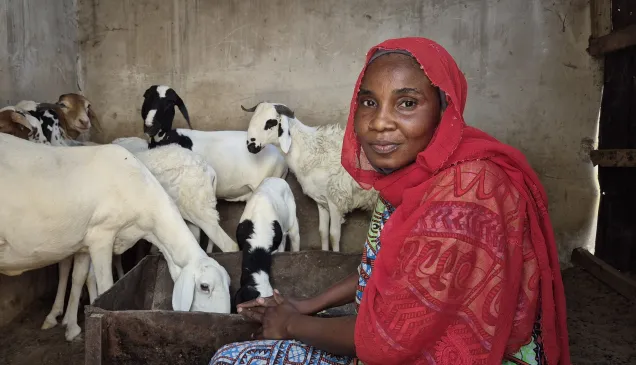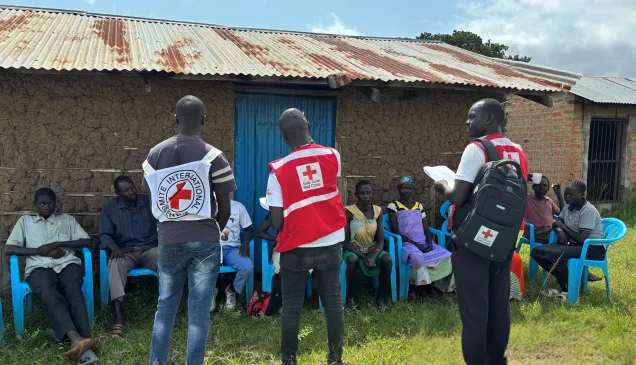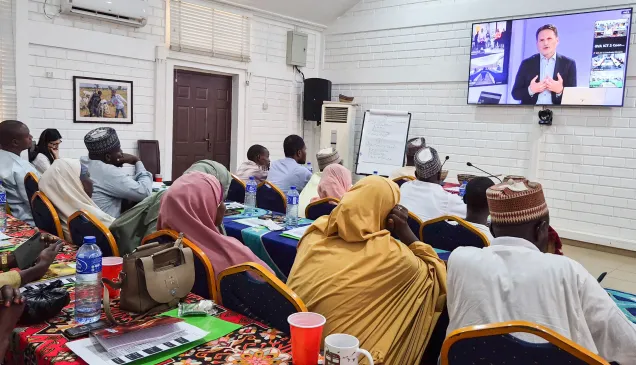Maiduguri’s keke are spreading COVID-19 prevention messages
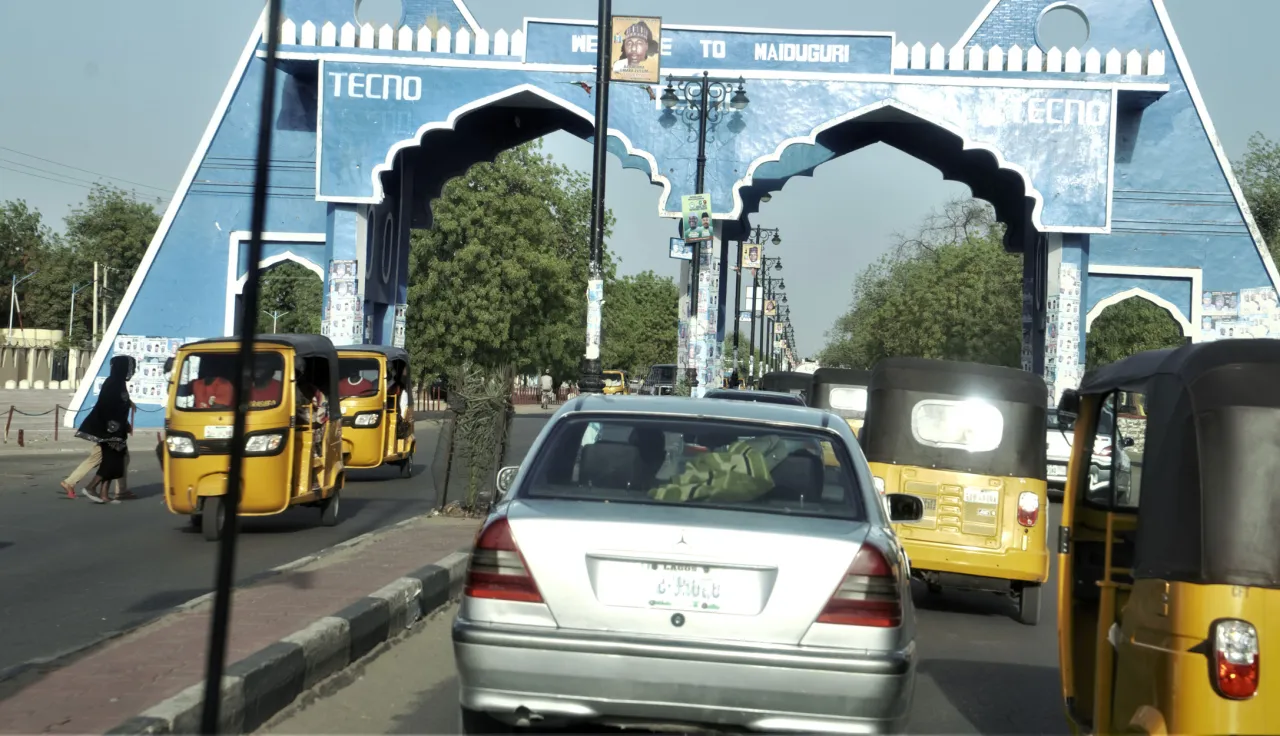
Keke drivers in Maiduguri are spreading COVID-19 prevention messages throughout the city, even as the virus threatens their hard-won livelihoods.
By Usman Kundili Bukar
At first glance, they seem to outnumber people in Maiduguri, a bustling city in Northeastern Nigeria. Brightly-coloured, motorized tricycles dot the streets of the entire city.
Their yellow and black stripes boldly stand out, as they whizz through every nook and cranny. Besides being the most common method of transportation in town, the tricycle, popularly known as keke, is a symbol of the city's youth. Young people make up the majority of keke drivers and of the population.
The spread of COVID-19 has posed a threat to these young people's economic prospects. Since social distancing measures were put in place, kekes are allowed to carry only two passengers instead of the usual four. Consequently, their earnings have been halved, and they now earn just 100 Naira, or $0.25, per ride.
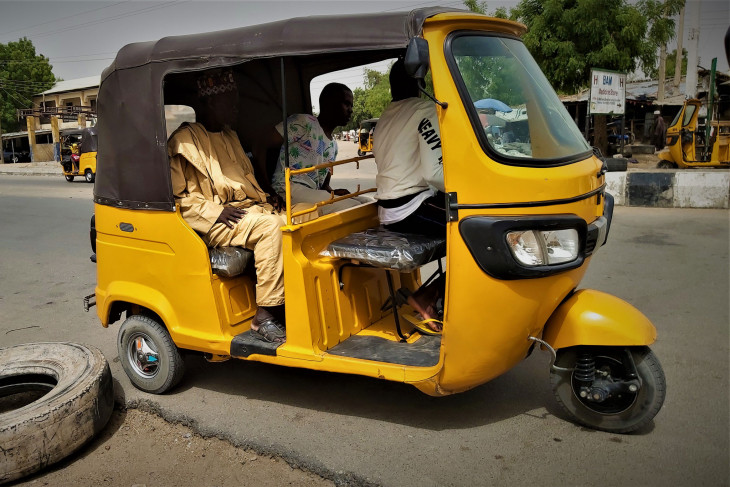
"I am very worried about the coronavirus pandemic. If it persists, it will be very difficult for me and my family to survive, because I depend solely on riding the keke everyday to earn a living," Abubakar explained, nodding his head repeatedly in frustration.
For 27-year-old Abubakar, the impact of the lockdown, suspended by the authorities in mid-May, was critical. Five years ago, Abubakar's family was forced to leave their home in Bama, an area ravaged by the conflict. His father was killed during an attack, leaving Abubakar, as the eldest son, responsible for providing for his mother and six siblings — something he said has been with a challenge.
The economic impact of the pandemic on the informal sector made it much harder. With no alternative income, Abubakar is among over 48,000 people who depend on keke riding. According to the chairman of one of the keke unions in Maiduguri (KENAPDA), over 200 members have already lost their jobs due to the pandemic.
However, keke drivers are conscious that the threat of COVID-19 goes beyond the immediate economic impact.
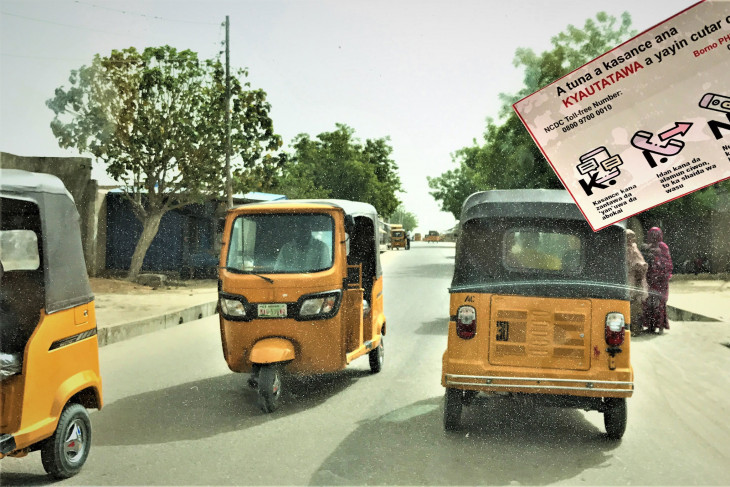
Abba Terab, chairman of the Keke Riders' Union, highlighted the need for sound public information to help curb the spread, saying, "It is our state, our people and it affects us all. We can help make a difference by raising awareness and enlightening people on how they can protect themselves during the pandemic."
There is a popular local saying that states, "If the Keke rider is not aware of events and happenings, then they don't exist."
The Nigerian Red Cross Society, with the support of the International Committee of the Red Cross, followed this adage to the letter, by supporting the production and the translation of stickers with COVID-19 prevention messages which are stuck on tricycles across the city. In this way, keke riders are utilizing their vast numbers and city-wide presence to help raise awareness about the virus and curb its spread.
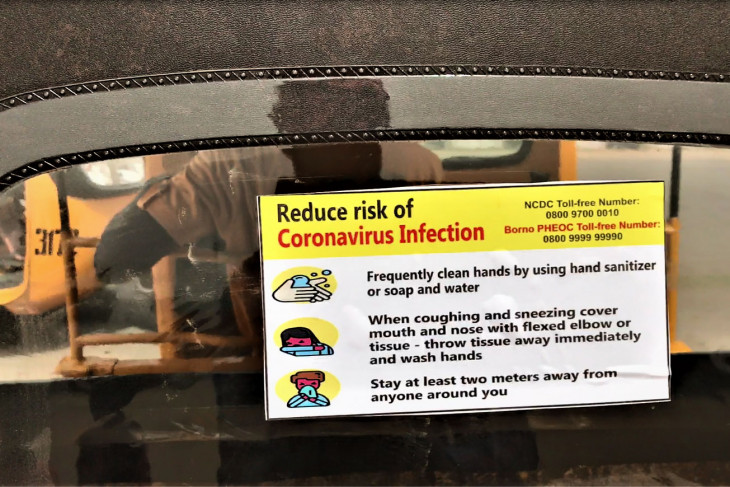
Umar, 20, explained, "Every passenger gets to read the message as we move. We also often chat with passengers about it and most of them really appreciate it."
Umar was just ten years old when the conflict started. A decade later, his job as a keke driver has provided him with an income that has funded his education. Despite the threat that the virus poses to their hard-won livelihoods, many drivers like Umar continue to work hard to stay financially afloat and support their communities as best they can, playing a role in promoting awareness about COVID-19.
"It takes only two minutes to inform a passenger, so we can spare that to ensure we are all protected from the dangerous COVID-19 virus," Umar said.

